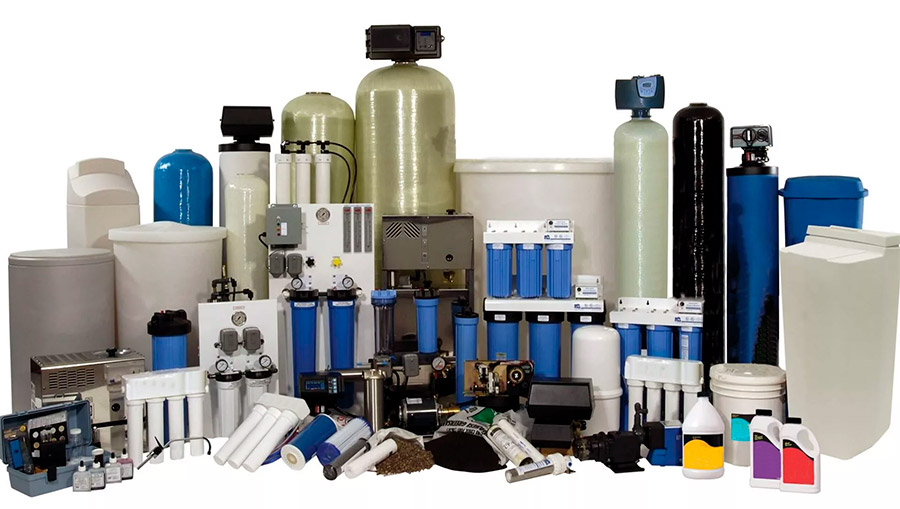
Industrial Filter Media: Improving the Efficiency and Performance of Industrial Filtration Systems
Industrial filtration systems are important components of various manufacturing processes, wastewater treatment plants and air purification systems. These systems use advanced filter media to effectively capture particles, contaminants and impurities from liquids and gases, ensuring product quality, environmental compliance and operational efficiency. In this article, we will look at the different types of industrial filter media, their characteristics and applications in various industries.
1. Filter bags:
Filter bags are widely used in dust collection systems, bag filters, and industrial vacuum cleaners to capture particles, dust, and airborne contaminants. These bags are made from high quality filter materials such as polyester, polypropylene and PTFE (polytetrafluoroethylene) to provide superior filtration performance and dust retention ability. Key features and benefits of filter bags include:
- Micron Ratings: Filter bags are available in a variety of micron ratings to suit varying particle size requirements, ranging from coarse to fine filtration.
- Large Surface Area: Filter bags have a large surface area to effectively trap particles and dust, minimizing filter clogging and pressure drop.
- Chemical Compatibility: Filter bags are compatible with a wide range of chemicals and process conditions, making them suitable for a variety of industrial applications.
- Durable Construction: Filter bags are made with reinforced seams, heat-sealed edges, and durable materials that withstand harsh environments and extend service life.
2. Filter cartridges:
Filter cartridges are used in liquid filtration systems, water purification systems, and process filtration systems to remove suspended solids, contaminants, and microorganisms from liquids. These cartridges are available in a variety of configurations such as pleated, wound and depth filter cartridges, providing flexibility and versatility in filtration processes. Key features and benefits of filter cartridges include:
- High Filtration Efficiency: Filter cartridges are designed to provide high filtration efficiency and particle retention capability, providing superior water quality and product purity.
- Wide Range of Materials: Filter cartridges use a variety of filter materials such as cellulose, polypropylene, ceramic and activated carbon to create custom filtration solutions based on specific application requirements.
- Easy to install and replace: Filter cartridges feature a universal design that allows for quick and easy installation and replacement, minimizing downtime and maintenance costs.
- Sterilization Options: Filter cartridges can be sterilized using methods such as autoclaving, gamma irradiation, or chemical disinfection to meet the stringent requirements of the pharmaceutical and biotechnology industries.
3. Filter membranes:
Filter membranes are thin, semi-permeable membranes used in membrane filtration systems, reverse osmosis systems and microfiltration systems to separate particulates, bacteria and viruses from liquids. These membranes are available in a variety of pore sizes and materials, allowing precise control of filtration efficiency and selectivity. Key features and benefits of filtration membranes include:
- Selective Filtration: Filtration membranes provide selective filtration based on pore size, molecular weight limit, and surface chemistry, providing precise separation of particles and contaminants.
- High Flow Rate: Filtration membranes feature high flow rate and permeability, allowing efficient filtration and separation processes with minimal energy consumption.
- Chemical Resistance: Filtration membranes are resistant to chemicals, acids and solvents, providing compatibility with a wide range of fluids and process conditions.
- Long Life: Filter membranes are designed to be durable and last a long time, providing reliable performance and consistent filtration results over time.
Conclusion:
Industrial filter materials play a critical role in optimizing filtration processes and ensuring product quality in various industries. Whether it's capturing suspended particles in dust control systems, removing contaminants from liquids in water treatment plants, or separating particulates from gases in air purification systems, the right filter media can significantly improve efficiency, performance and reliability. By leveraging the capabilities and benefits of filter bags, filter cartridges and filter membranes, industrial plants can achieve superior filtration results, meet regulatory requirements and improve overall productivity and environmental friendliness. With continuous advancements in filtration materials, technologies, and techniques, industrial filtration media continues to evolve and innovate to address emerging challenges and opportunities in the dynamic industrial landscape.






